2025
And the rest of the decade
As is customary at this time of year, anyone who thinks of themselves as a writer, or a tweeter, or a podcaster sits down and puts their predictions for the following year out there for the world to see.
However, when I reflected on my previous predictions, last year, and the year before and all years in fact, I realised I'm more often than not spectacularly wrong.
For example, when I first discovered Bitcoin, I remember telling people, "This is the future. It's incredible tech. It's going to be worth a fortune and make a LOT of people very rich." And then it plummeted like 90%, and I felt like an idiot. It took a decade for that prediction to become correct and for BTC to 100x.
In the world of stocks, I remember reading the Tesla master plan in 2014 and being blown away by Elon's vision. I instantly put one month's paycheck into Tesla shares, expecting to make a ton of money as surely the world would also see what I saw? But it took me SIX years to break even on that purchase, before swiftly doing a 20x.
All this to say, I absolutely suck at short-term predictions. I get carried away. I say things like "Friend tech is the future," or "Worldcoin will solve proof of personhood," or "The AI bots aren't just memecoins." And I'm pretty much always wrong.
But I'm also sometimes right. Just usually many, many years after making these statements that make me a laughing stock to normal, well-adjusted people.
So this year, for my predictions, I'm going to ignore 2025 entirely and focus on what I think will happen over the remainder of this decade.
Maybe this is a cop-out, maybe not, but it's way more fun to dream, write, and get excited about the literal world-changing, life-altering, paradigm shift that humanity is about to go through than it is to predict if BTC will hit $130k in Q1 or Q3.
So what do I think is going to happen?
I think the world is going to change more than we can possibly imagine.
The present
I think so many of us are still drastically underestimating the rapid pace of change that has happened since ChatGPT first burst onto the scene.
So many of my friends still say to me that AI barely works, or hallucinates a ton, or gets things wrong, or can't do hands, and they were right.
They were right six months ago.
But for those who have been playing with this stuff every day, it's clear to see that it's just no longer the case.
Already, AI can perform in so many areas better than the majority of human beings on the planet. It can do artwork better than me; it knows infinitely more about science than me; it can write better than me; it can research better than me; it's kinder and more empathetic than me; it doesn't get tired; it doesn't sleep, and it's available 24 hours a day.
At Christmas this year, some family members were looking at this old cookbook from decades ago. It was stained and ripped, barely legible, covered in handwritten notes, and the recipe was written in old English.
They were trying to figure out how to convert the recipe for a small gammon into one suitable for a much larger piece of meat.
I walked over, took a picture of the page, and loaded it into the FREE TO USE basic ChatGPT model, and within three seconds it had responded to me with step-by-step instructions, the conversions switched from pounds to grams, and the recipe timings upscaled to sufficiently cook the meal.
Everyone was blown away.
What I am getting at is this is not the same AI we all stumbled upon two years ago. It is an order of magnitude better, and it's already better than most of us at most things.
And this is the free-to-use basic model. It's not the paid version. Or the new, scary, impressive, smarter-than-99.9%-of-all-humans-to-ever-live O3 models. It's literally the worst version you can use.
Most people have yet to update their mental models about what AI is and what it is capable of, and despite people calling it a bubble right now, it really doesn't feel like one.
The future
I've posted the above image from Tim Urban a few times, but to me, it is the best depiction of what is about to happen.
Sam Altman said that he expects AGI to be with us within five years, and the Anthropic CEO predicts we'll be there in 2026 or 2027.
And after watching the OpenAI video explaining the benchmarks of the new O3 model, I'm pretty sold on the fact that AGI will be here very, very soon, and the resulting innovations from this will change the world more than we've seen in all of human history.
Without wanting to sound too much like a madman, I think there's a very high chance that, in the long arc of human history, people will look back on the pre-2025 era with the same disbelief we feel about the past. When people died from tooth infections, childbirth was a leading cause of death, or diseases like smallpox devastated entire populations. They'll laugh at how we lived through pandemics, poverty, and untreated mental health issues when solutions were within reach, wondering how we tolerated so much preventable suffering.
Eventually, after a very turbulent period which I'll touch upon later, I think some variation of this utopian future is likely inevitable. Many people, of course, will take the opposing view and extrapolate out some doomed future where we're replaced by robots who enslave us, or become paperclip maximisers, or put those of us who survive into zoo-like structures where future civilisations wander by and point and laugh at how basic and stupid we are.
Sidenote weird thought* what if we're already in a zoo right now and the rest of the universe is watching us in some weird reality TV show - NO STOP DON'T GET DISTRACTED TRY TO STICK TO THE POINT OF THIS POST YOU IDIOT.
Being a doomer is easy, but it's not very nice. So I'm just going to ignore all the things that could go wrong and focus on the positive options. Because if they go wrong, then I'll be dead anyway, and what's the point in being sad if you're about to be eaten by our own AGI creation? You may as well go out smiling.
Back to the future - again
Okay, I thought this post was supposed to be about predictions; so far, you've just rambled and given zero predictions. Where are they!!!!!
1. Actually good healthcare
I live in a fairly wealthy country, one that has free healthcare. And it's great; if you have an emergency, you can generally get seen pretty quickly, and most people are very well taken care of.
But I think in a decade we will look back on the level of treatment we receive today, and it will look like the scenes from movies where they tie a rope around someone's leg and cut it off without anaesthetic using a rusty saw to stop the infection in their little toe from spreading around their body because antibiotics haven't been invented yet.
As good as current doctors are, they still make mistakes. They get tired, they work long shifts, they deal with difficult, angry, and shouty patients. Things do go wrong.
Specialists are in short supply, and cure is almost always the focus rather than prevention, meaning things take far too long to be caught, and we are operating from a reactionary standpoint rather than a proactive one.
With AI, I think this all changes.
Assuming some future model can perform to a higher standard than the very best doctors in the world, in all fields, then as the cost of compute comes down and Moore's law works its magic, eventually, everyone, everywhere will have access to the world's best medical advice for literally 0.01% of the cost we pay today.
Today it can take up to 8 weeks to receive the results for your MRI scan back. I think in the future this will be the equivalent of sending letters by carrier pigeon. When AI can perform and diagnose the scan itself, you'll likely receive your results instantly, with far higher accuracy than you get from even the very best of doctors.
This adds so much efficiency, cuts costs, and ultimately will save SO many lives by having far earlier diagnosis.
My one wish for 2025 is that governments around the world STOP TRYING TO BAN THIS STUFF, and instead expend the same amount of energy figuring out ways to stop the bottlenecks and figure out how to embed these processes in our decaying healthcare systems because it is bordering on negligence already to not have AI at least giving a second opinion almost every step of the way.
2. The race to AGI starts a space race, but for energy development
The last decade has been this weird period of time where countries have purposefully decided to saw off their own body parts for no real reason other than to virtue signal to other countries that they are saving the planet.
Major nations have decommissioned nuclear power stations, heavily taxed fossil fuels, made cars less reliable, and psyops an entire generation that you're better off with everyone being equal and living together in mud huts without electricity and heating than you are with one person having slightly more wealth than others, but all of humanity living in abundance.
I think this trend shifts as governments realise not having advanced AI in their country is a HUGE geopolitical risk.
Each time an AI model makes an improvement, the value of their output increases, which means the business case for increasing the inputs (energy and compute power) starts to look far more attractive.
Everyone will require orders of magnitude more power to bootstrap these supercomputers.
This means the amount of investment into energy and related technology likely goes up only, coupled with tech improvements helping along the way, and you likely get a flywheel effect where total energy generation goes up only and the cost for each marginal energy unit goes drastically down.
This is super important because it means basically everything gets more efficient. Businesses become cheaper to run. Homes become cheaper to heat. Experiments become less costly. Electric cars cost close to zero to power.
And these are just the benefits that I in my privileged bubble get to enjoy. The outcome is so much more beneficial for those of us living in energy-poor nations. Clean water, for example, can become accessible through affordable desalination and purification techniques, only possible with access to more power.
3. Education
I was an idiot when I was a kid.
Well, maybe that's a bit harsh, but I certainly wasted a lot of opportunity because of this random anxiety I had, and probably still have, around asking for help.
Many of you who read the stuff I write will probably be a bit confused when I say I was rejected from all the good universities because I failed to score high enough on my high school math exams.
It's odd because I absolutely love math. I play with spreadsheets all the time. If you knew how much of my brain power went into thinking about compound interest, you'd put me in a mental institution. But yet, my school grades for math were shockingly bad.
And I'm not going to blame the teachers for this; it was entirely my own fault.
I think I missed some basic principles in early math lessons and then spent the next five years at school being too afraid to ask for help and basically blagged my way through it using a mishmash of techniques I'd made up in my head to try and close the gap.
Of course, this doesn't really work when you're graded based on showing your workings, and of course, my workings made zero sense to any rational mind.
But anyway, this boring story is just here to illustrate how detrimental it is if you miss some basic thing in education. Often through no fault of your own, maybe you're sick and miss a lot of school. Maybe a pandemic comes along and you're homeschooled for a year by alcoholic parents who never learned to read. Maybe you have a difficult home life, and focusing in class is the least of your worries when you're thinking about where your next meal will come from.
It's very hard to catch up. Teachers are busy. There are like 30 kids in the class and one adult. Despite their best efforts, there is no way of them knowing truthfully what every child really needs to prosper.
And this is where I think AI will help tremendously. You essentially give every child access to an infinitely patient teacher who can explain concepts as simply as needed, in as many different variations as needed to help anyone understand basically any topic.
How many brains out there are wasted because they learn in a slightly different way from how the textbooks are written? How many people never really achieve their potential or realise a love for a subject because they miss out on some basic piece of information and decide it's too hard for them?
I know a lot of people will initially be very skeptical of giving children access to these AIs, but I do think long term it will have HUGE benefits. They'll be able to pick up on minute language changes that humans might miss and notify teachers about potential mental health or safeguarding risks.
And it doesn't stop with just school-age learning. Adults anywhere can relearn, retrain, or simply just explore topics they never had a chance to learn about with a personalised tutor helping them every step of the way.
4. Replacing mundane tasks
Sadly, a lot of humans spend the vast majority of their waking hours working on incredibly mundane tasks.
Working in call centers, typing on spreadsheets, sitting in traffic or driving a truck, filling in forms, dealing with solicitors or estate agents when selling a house, booking a flight, or trying to talk to a human to cancel a phone contract you've been trapped in BECAUSE THEY MAKE IT PURPOSEFULLY IMPOSSIBLE TO LEAVE.
The cumulative number of hours humans across the globe put into dealing with these archaic, inefficient systems is mind-boggling.
But thankfully, AI will help here too. In a few years, I imagine you'll be able to just ask your personal AI agent to cancel your contract for you, or update your portfolio tracking spreadsheet.
Instead of being stuck in traffic, your car will drive for you. When I mentioned this to some of my car-loving friends, they got very mad at me. No way. People love driving. It is the most important thing to Americans after owning guns and being overweight, they said.
But globally, over a million people a year die in traffic accidents. These are deaths that in the future will be entirely avoided as cars become infinitely safer than they are now. I even think that it's inevitable that at some point, years from now, human driving will be viewed in the same way as drunk driving is now. It will likely be socially and maybe even legally unacceptable.
When you think about it, it's kind of insane really that in the UK you can spend a few weeks practicing and they'll give you a license to drive a two-ton machine capable of inflicting mass death if you're not paying attention, but they don't trust you enough to invest in a Bitcoin ETF, or so much as glance at the pump fun website without putting you in jail.
I could go on with these predictions forever, but then this post would be a book and you'd all have died of old age waiting for me to write it, so I'll try to summarise here.
The cool thing about these developments is they all benefit each other; they add rocket fuel to the flywheel. If we have better education, people get smarter; if we have better healthcare, people spend less time being sick; if we have more energy, people spend less time worrying about food prices and heating their homes. If the majority of human energy is no longer spent completing mundane, soul-destroying tasks, then people can spend less time angrily shouting at things and spend more time on things they love and enjoy.
It's kind of like how 1,000 years ago the difference between the wealthiest person on earth and the average person was huge. The wealthiest built themselves temples and solid gold chairs, whilst the masses faced starvation. Only rich people could read and write; upward mobility was an impossible dream; meritocracy did not exist.
Today, yeah, maybe some rich people buy huge houses, but the average person also has a house, heating, and food.
I think AI makes this gap even smaller. Most things that only the super wealthy can enjoy today like personalised healthcare, therapists, drivers, private tutors etc., will all be democratised and made available for all.
We just need to make it through the problem period first.
(I promise this stupid post will eventually make sense and be related to crypto, please bear with me, or block me on Twitter for wasting your New Year's Eve reading this dumb rant)
The problem period
The problem period I predict will appear at some point within the next five years.
As AI continues to improve, companies with a fiduciary responsibility to maximise shareholder value will naturally begin replacing human workers with machines.
And this will not just be in basic areas. It will be everywhere. Knowledge workers, accountants, data scientists, software developers' jobs will all certainly be at risk. In fact, the vast majority of career paths available today will likely be completed better by a machine than a human this decade.
Why pay someone tens of thousands of dollars annually when an AI can perform the same tasks more efficiently, at minimal cost, without sick days, with fewer mistakes?
It feels truly inevitable that there will be huge, temporary disruption across basically every industry as companies race to cut costs in order to compete with newer, AI-driven startups.
Now doomers will say it's over and we'll be poor forever and live life in misery, but human history doesn't really support that. Humans are remarkably adaptable; we've gone through huge shifts before. From being hunter-gatherers, to working on farms, to the industrial revolution, to the advent of the internet etc. The way we work shifts constantly throughout time. Stuff never really stays the same. We will be fine.
But it is true that the speed of this particular change is different. There will be a problem period. Governments and businesses will not be fast enough to react, and people will fall through the cracks.
It's likely that the variance of your outcomes and the volatility of life dramatically increases over the coming years as we all collectively try to figure out how to harness the power of something so much smarter than us.
Which is why my main focus for 2025 is building myself a bridge over the problem period.
And that bridge starts with Crypto.
Crypto for me, and for many of you too, is one of the only industries on earth that provides us with the raw materials we need to build ourselves a bridge over the problem period.
It's one of the few places you can go from zero to wealthy in very little time, with very little experience, just based solely on hard work and intellect.
Take some of the recent AI agent innovations for example; these were available for anyone to invest into at a very low price, for a very long time, and now trade at multibillion-dollar market caps.
Man I fumbled this one so bad aaaaaaa
Access to good quality deals is finally re-emerging again. MegaETH, for example, raised via a community sale, providing the opportunity for skin in the game to anyone who wanted it.
Nillion, a project focused on allowing us to safely share our most private data with AIs, did the same thing, raising via a public sale on Coinlist - again, basically anyone who was paying attention could participate.
And this is before we even think about airdrops; Hyperliquid gave its power users hundreds of thousands of dollars, and everyone else an opportunity for a liquid 10x trade. Countless other projects gave users significant sums of money too.
And crypto is one of the few industries that is hyper-aligned with AI. Yesnoerror, for example, is using a combination of crypto and AI to fact-check every scientific paper ever written. This would have been impossible without the merging of both industries.
Simply existing in crypto and paying attention keeps you more up to date than just about any other industry outside of AI itself. You have to keep up, or you get left behind.
This space changes so many lives, and I am forever grateful that I found it when I did.
This is why for me, 2025 is the most important year of my life. It might be the final year ever where we live in a pre-AGI world. For many, it might be the last realistic shot we have of generating enough wealth to comfortably transition through the most disruptive period in all of human history.
I'm not talking about CTs crazy expectations of wealth either. You don't need tens of millions. I do think though, you need enough to cover all your bills, your food, your mortgage etc., for a multi-year period. Because there is a very, very good chance we trudge our way through mass unemployment whilst governments scramble to figure out how to help people and probably mess up A LOT along the way.
At the depths of the problem period though, I think things start to change. Think about how much money was printed during Covid, a period of time where large swaths of the economy couldn't operate because of a virus being spread. Imagine how much will be churned out when significantly more workers are displaced. Governments will be doing all they can to prevent civil unrest, and in smaller, poorer nations who don't have the ability to mass print money, I suspect we see full-on government collapse.
I think the resulting mania from this though will make 2021 look insignificant on a chart. At some point in the next few years, we probably get the biggest bubble of all time, and it's another reason why securing your wealth now is so important. You absolutely want to go into that time period with as much capital as possible to maximise your opportunity. Because once AGI is here individual humans likely will have far far more competition than we do now.
The good news though is even if you manage to mess this whole thing up and leave 2025 completely broke, I’d wager that by the end of the decade, life for the average person is still far far better than it is today, even if your job at McDonalds gets taken by a robot.
Happy new year and see you all in 2025 :)
NOTHING IN THIS POST IS FINANCIAL ADVICE I AM AN IDIOT I KNOW NOTHING ABOUT ROBOTS AND AI OR CRYPTO OR MONEY I AM SAD CRYING DOG ON THE INTERNET PLEASE READ STUFF FROM SOMEONE ELSE OR BE POOR FOREVER


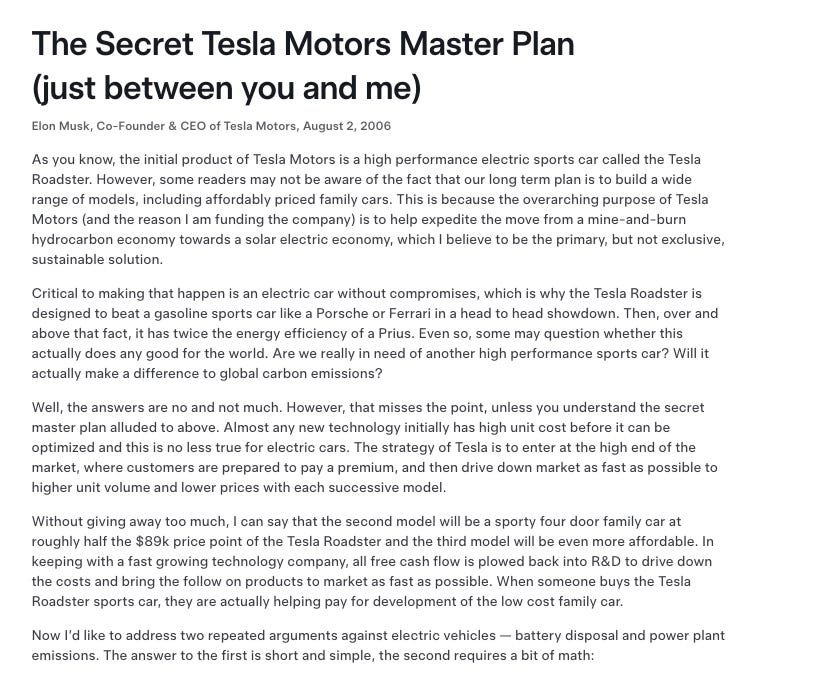



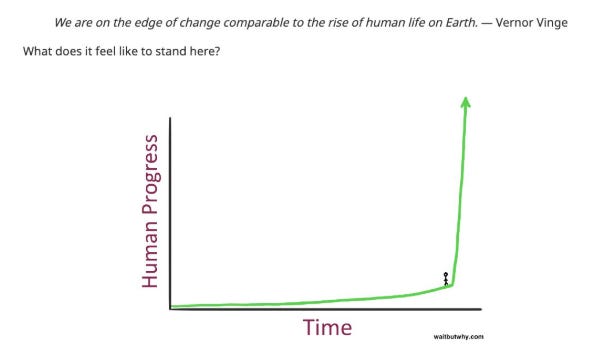




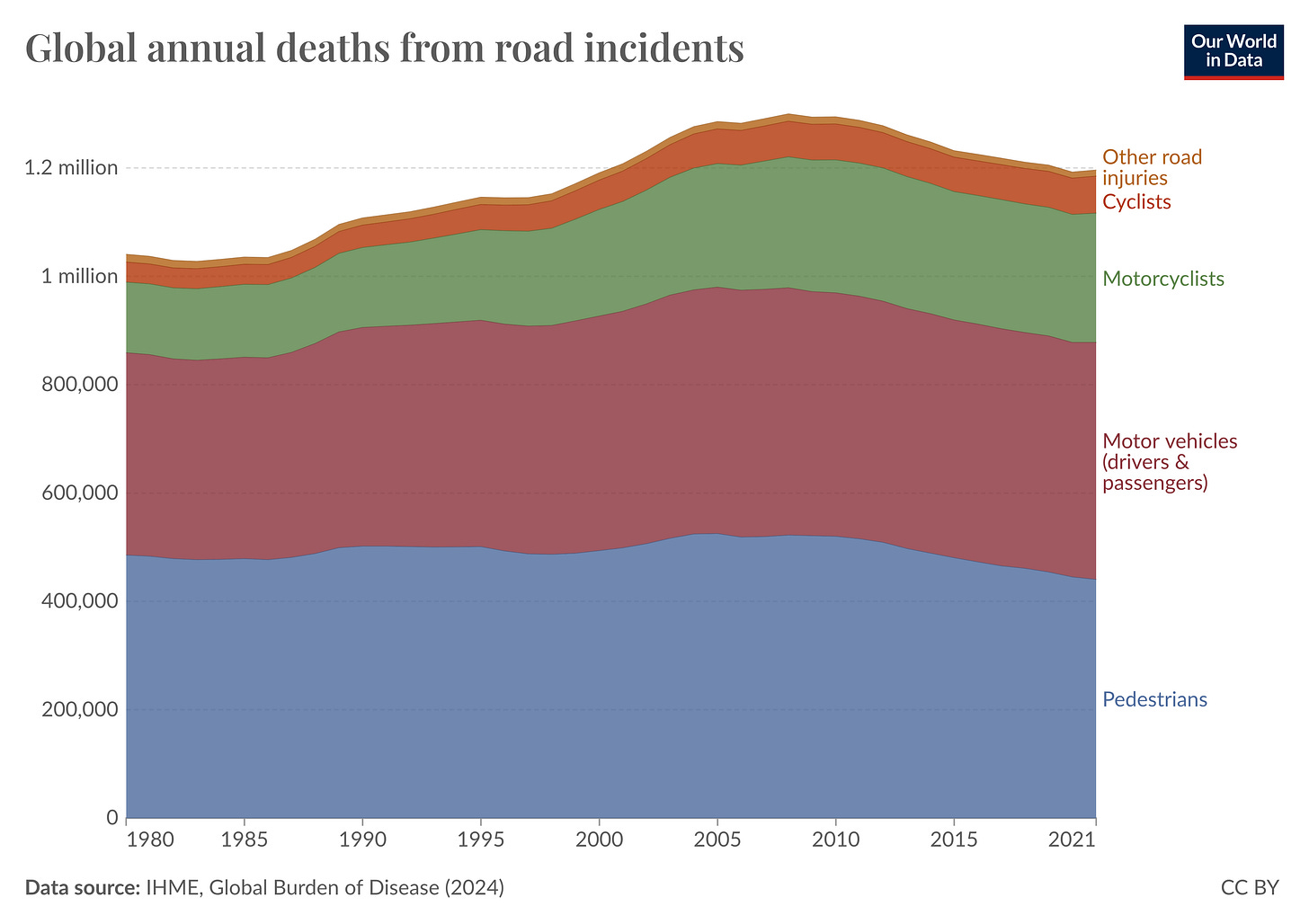


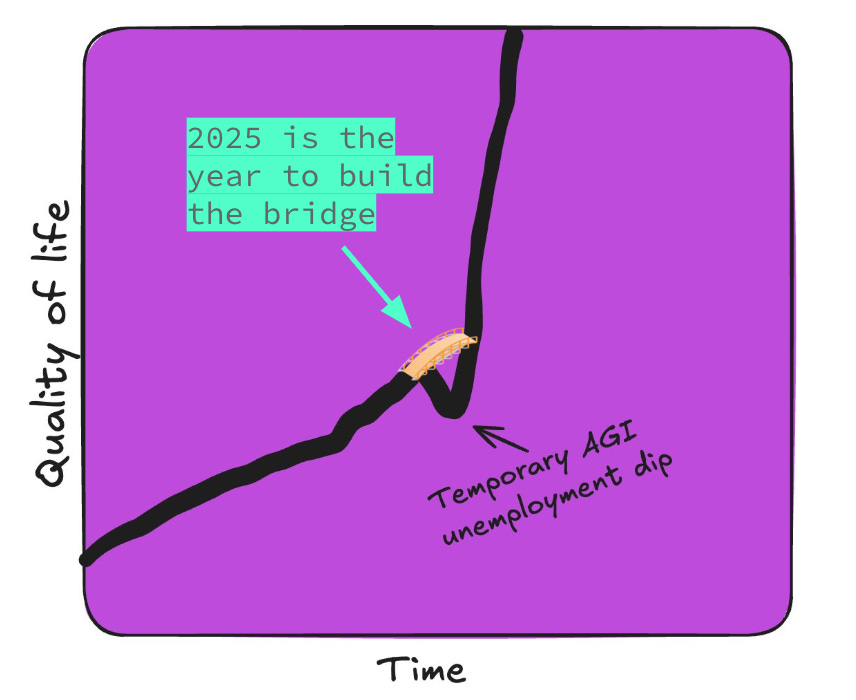

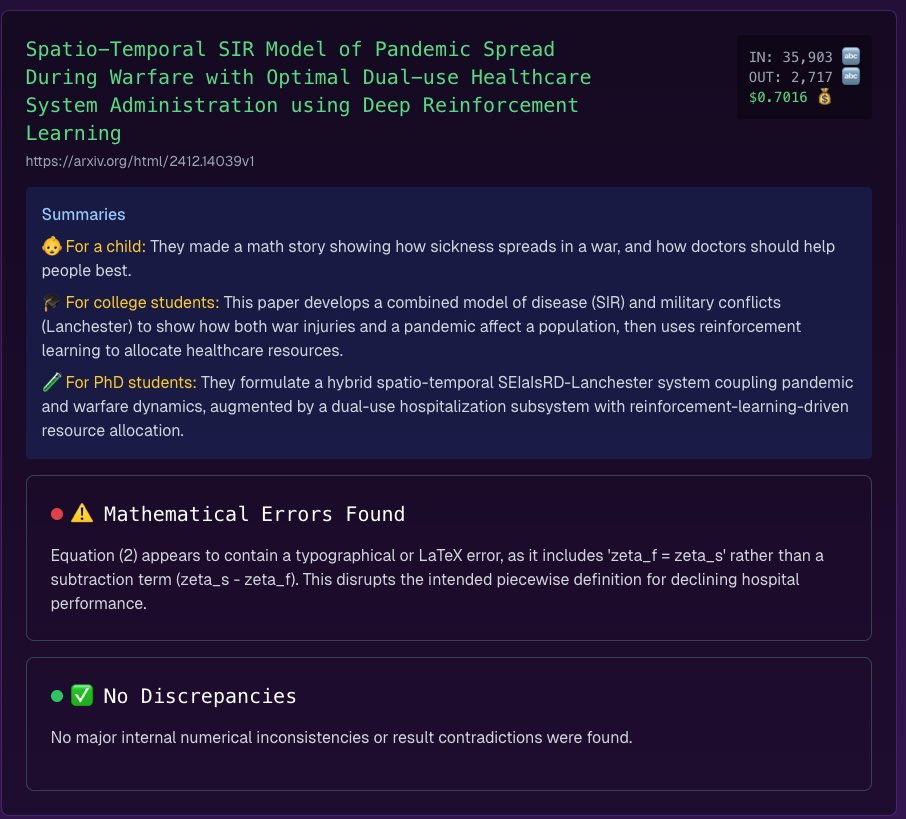

gmonad gmonad happy new year
What a good article